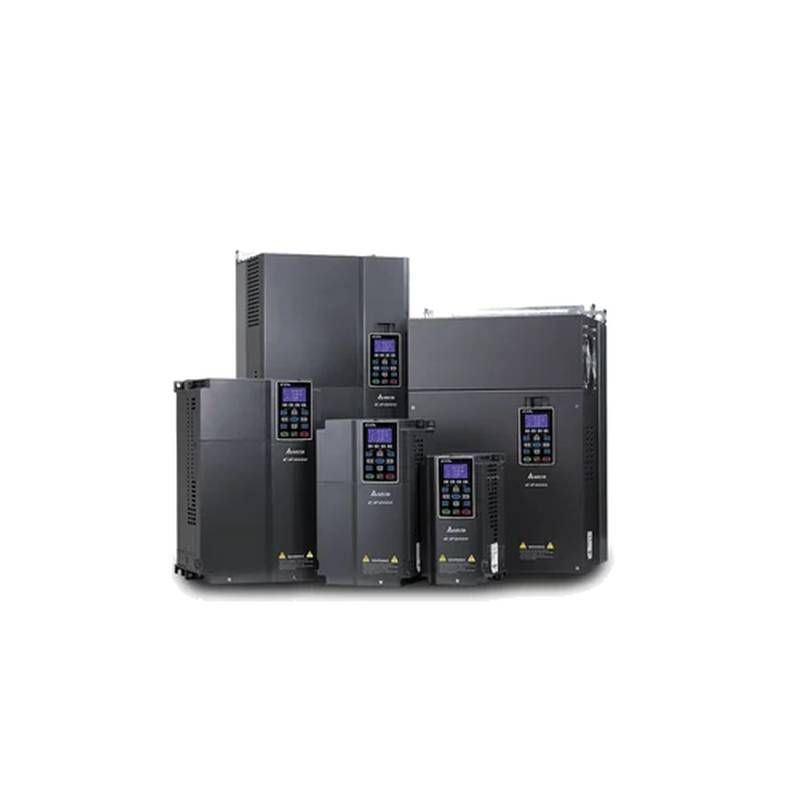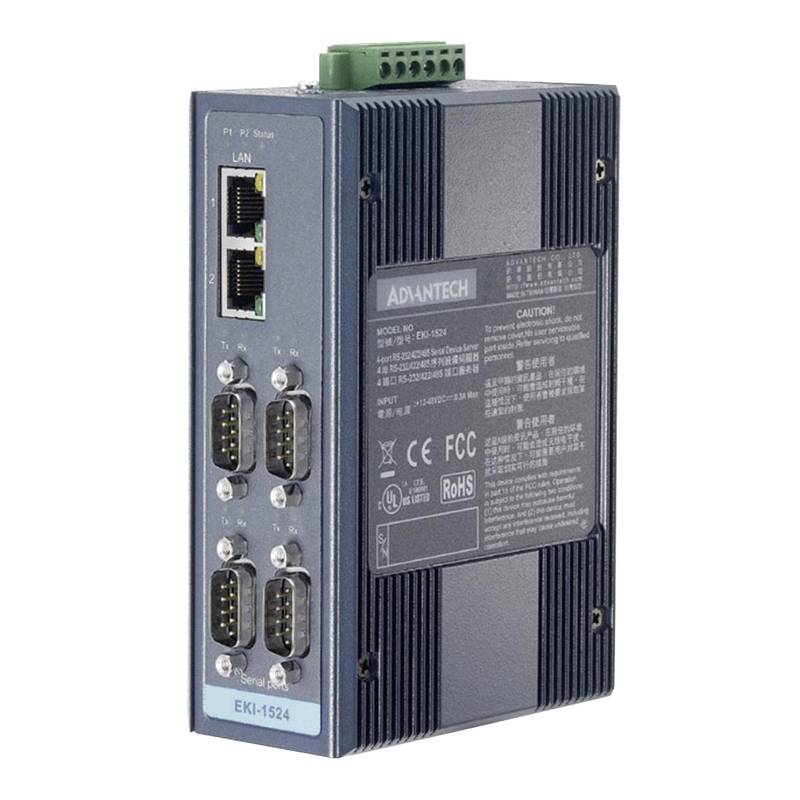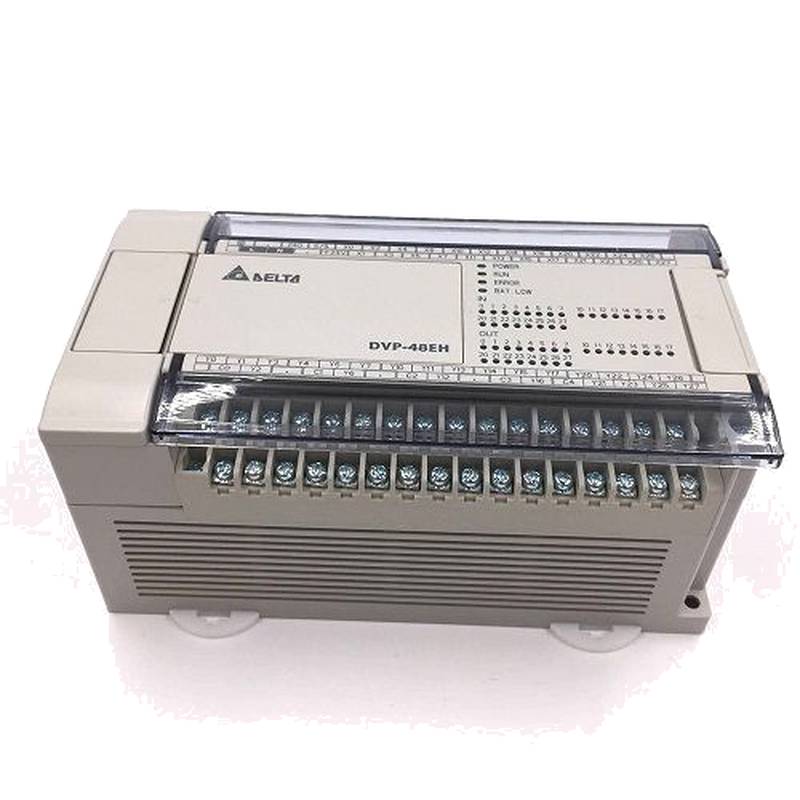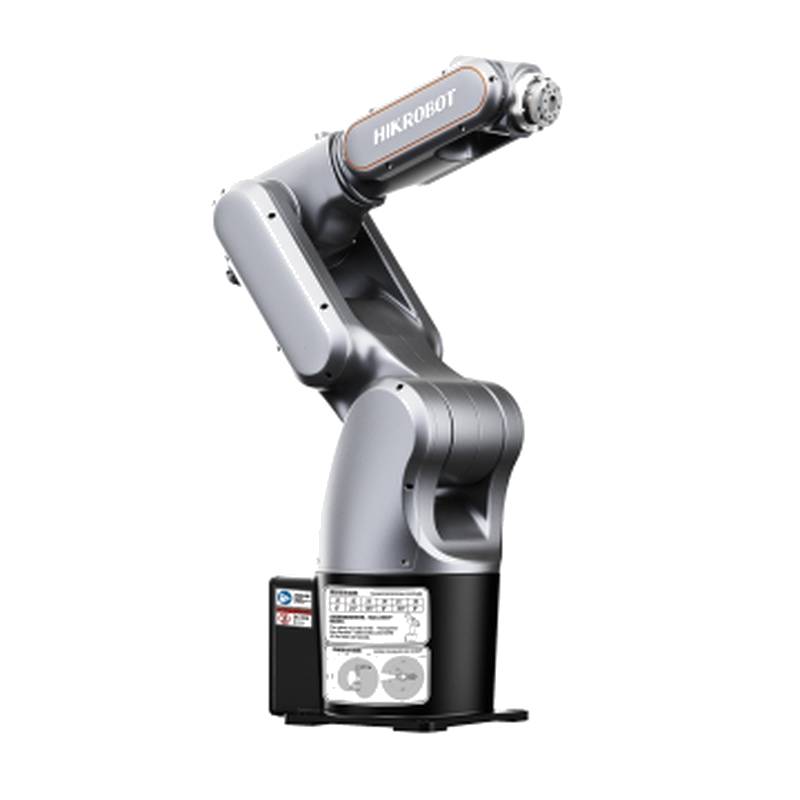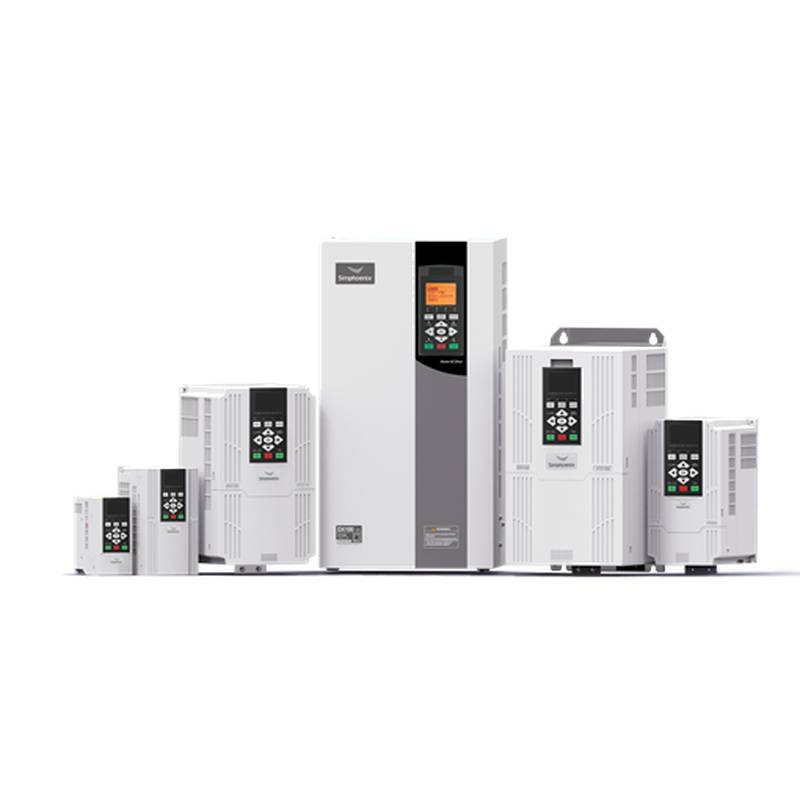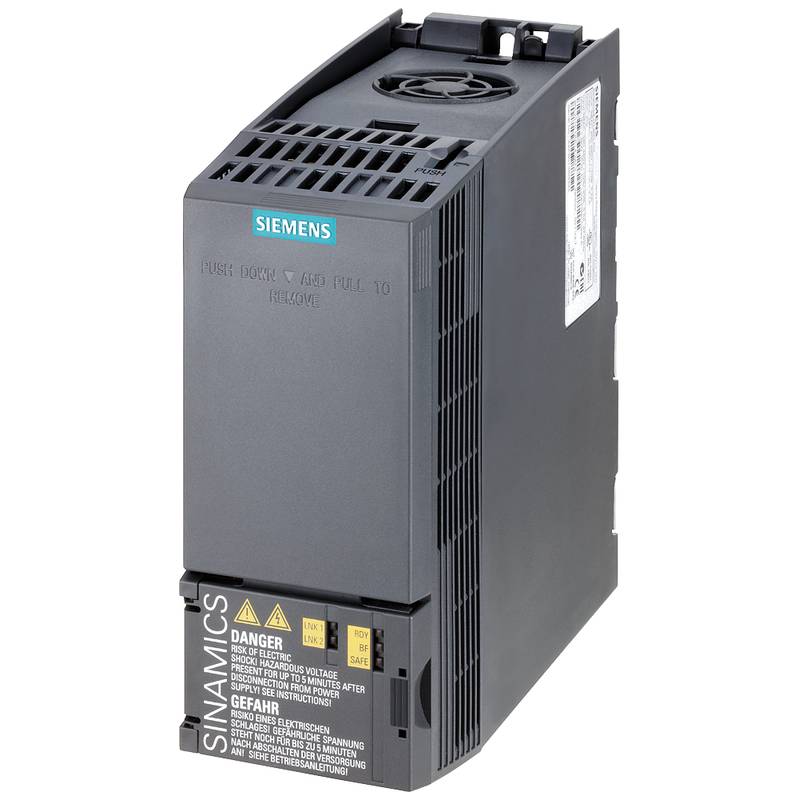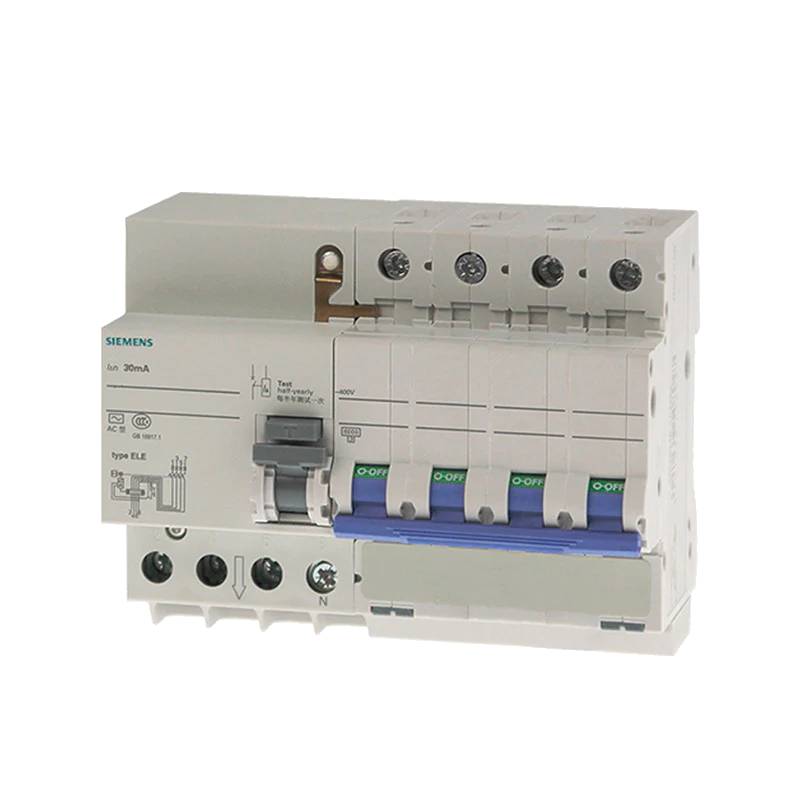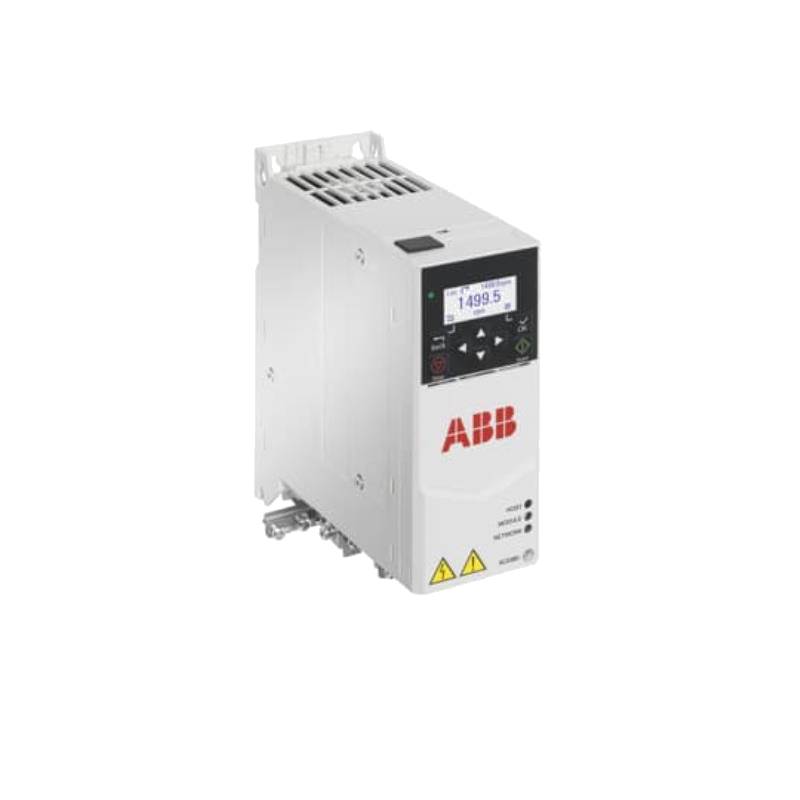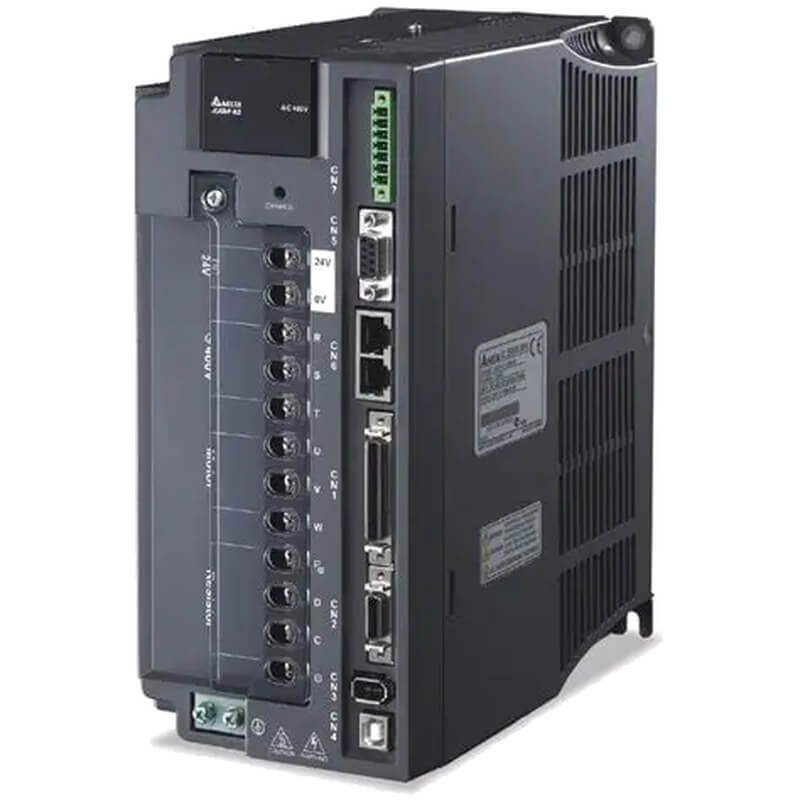
The Delta VFD1320CP43B-21 CP2000 High Power VFD Drive is a robust and versatile variable frequency drive engineered for demanding industrial applications. This 260A, 132kW (175HP) unit offers exceptional motor control, energy efficiency, and advanced features to optimize performance across a wide range of machinery. Its core advantages lie in its sophisticated control algorithms, enhanced protection capabilities, and user-friendly interface, making it a preferred choice for elevating operational efficiency and reliability in critical processes.
Product Specifications
| Parameter | Value |
| :------------------ | :---------------------------------------- |
| Model | VFD1320CP43B-21 (CP2000 Series) |
| Rated Output Current | 260 A |
| Rated Output Power | 132 kW (175 HP) |
| Input Voltage | 3 Phase, 400V Class |
| Output Frequency | 0-600 Hz |
| Control Method | Sensorless Vector Control, V/f Control |
| Protection | Overload, Overvoltage, Undervoltage, etc. |
| Communication | Built-in RS-485, Optional fieldbus cards |
| Mounting | Wall/Cabinet Mount |
Core Features & Market Positioning
The Delta CP2000 series, exemplified by the VFD1320CP43B-21, distinguishes itself through its advanced sensorless vector control, enabling precise speed and torque regulation even under fluctuating loads. This drive supports a wide output frequency range up to 600 Hz, catering to high-speed applications. Its robust design includes comprehensive protection features, safeguarding both the drive and the connected motor from electrical disturbances and operational faults. The CP2000 series is positioned as a high-performance solution for industries demanding superior motor control accuracy and energy savings, often competing with premium drive offerings through its balance of advanced technology and cost-effectiveness. The integrated RS-485 communication port facilitates straightforward integration into SCADA and PLC systems, with optional network cards available for wider protocol support.
Key Application Scenarios
The Delta VFD1320CP43B-21 is ideally suited for applications requiring precise speed and torque control, such as conveyor systems, pumps, fans, and extruders in manufacturing and processing plants. Its high power rating makes it suitable for driving large industrial machinery in sectors like HVAC, plastics, and material handling. The drive's ability to handle fluctuating loads and provide energy savings through optimized motor speed control is particularly valuable in variable torque applications like centrifugal pumps and fans, contributing significantly to operational cost reduction.
Practical System Integration Guidance
Proper installation of the Delta VFD1320CP43B-21 involves ensuring adequate ventilation to maintain optimal operating temperatures, as overheating can lead to performance degradation and reduced lifespan. When wiring, it is crucial to use shielded cables for motor connections to minimize electromagnetic interference (EMI), especially in electrically noisy environments. For commissioning, basic parameter setup typically includes defining motor nameplate data (voltage, frequency, current, RPM), setting acceleration/deceleration times, and configuring basic I/O for start/stop and speed reference. Advanced setup may involve tuning the sensorless vector control parameters for maximum performance based on the specific motor and load characteristics. It is recommended to consult the official Delta VFD-CP2000 User Manual for detailed wiring diagrams and programming instructions.
Operation and Risk Mitigation
Safe operation of the Delta VFD1320CP43B-21 mandates adherence to local electrical codes and the guidelines provided in the product manual. Always ensure the drive is properly grounded and that all power and motor connections are secure before energizing the unit. Key safety interlocks should be implemented to prevent unexpected startup. Common troubleshooting scenarios often involve addressing overload faults (often due to incorrect parameter settings, undersized motor, or mechanical issues), overvoltage/undervoltage faults (related to the power supply quality), or communication errors. For instance, an "Overload" fault (often represented by code OL or similar) might require adjusting the overload protection parameters or investigating the mechanical load. Always refer to the drive's fault code list in the manual for precise diagnostic information and recommended corrective actions.
Scalability & Long-Term Value
The Delta CP2000 series drives are designed for seamless integration with existing industrial automation platforms. The built-in RS-485 communication, along with optional communication modules for protocols like Modbus, EtherNet/IP, and Profibus, ensures compatibility with a wide array of PLCs and SCADA systems, facilitating easy upgrades to networked control architectures. This interoperability enhances the scalability of the system, allowing for expansion and reconfiguration as production needs evolve. Furthermore, Delta's commitment to developing advanced VFD technology, including features that support energy monitoring and diagnostics, positions the VFD1320CP43B-21 as a long-term investment that can contribute to IIoT initiatives and the realization of smart factory objectives through enhanced data acquisition and remote management capabilities.
Frequently Asked Questions (FAQs)
1. What is the maximum output frequency of the Delta VFD1320CP43B-21?
The Delta VFD1320CP43B-21 is capable of delivering an output frequency of up to 600 Hz. This wide frequency range allows for precise speed control of motors, even in high-speed applications common in specialized industrial machinery. It's essential to ensure the connected motor is rated for such speeds.
This high output frequency capability makes the drive suitable for applications requiring rapid acceleration or precise, high-speed operational settings. Proper motor selection and drive parameterization are key to achieving optimal performance safely.
The ability to reach 600 Hz provides flexibility for various advanced industrial processes. This feature is crucial for sectors that demand rapid cycle times or very specific rotational velocities for product manufacturing.
2. How do I connect a remote control panel to the Delta CP2000 VFD1320CP43B-21?
Remote control panel connections are typically made via a dedicated cable to specific terminals on the drive. The manual details the terminal assignments for keypad communication. Ensure correct wiring polarity and cable type for reliable operation.
Referencing the Delta VFD-CP2000 user manual is critical for the exact pinout and cable specifications. Incorrect connections can lead to communication errors or damage to the drive or panel.
The drive supports remote operation for enhanced operator safety and convenience. This allows for monitoring and control from a distance, particularly useful in hazardous or difficult-to-access industrial environments.
3. What are the common fault codes for the Delta VFD1320CP43B-21 and their meanings?
Common fault codes include "Overload" (OL), "Overvoltage" (OV), and "Undervoltage" (UV). OL typically indicates the motor is drawing too much current, possibly due to mechanical load or incorrect parameters.
OV and UV faults relate to the input power supply quality. Check the mains voltage stability and ensure it falls within the drive's operating range. Consult the manual for a comprehensive list and specific solutions.
For instance, an "Earth Fault" (EF) code suggests a short to ground. Always perform a thorough inspection of motor windings and cabling if such codes appear.
4. Can the Delta VFD1320CP43B-21 be used with single-phase motors?
No, the Delta VFD1320CP43B-21 is designed for three-phase motors only. It requires a three-phase input power supply to operate correctly. Using it with a single-phase motor is not supported and can lead to damage.
If a single-phase motor application is required, an appropriate single-phase input VFD or a phase converter for the motor would be necessary. Always verify the motor type and power supply compatibility before installation.
The drive's output is a three-phase variable voltage and frequency signal, essential for controlling the speed and torque of standard three-phase induction motors. This ensures efficient and precise motor operation.
5. What is the typical power factor correction provided by this VFD?
This VFD inherently provides a high power factor close to unity at full load. The drive's internal circuitry draws current in phase with voltage, minimizing reactive power demands.
This leads to improved overall system efficiency and reduced utility penalties for low power factor. Energy savings are a key benefit of using VFDs like the CP2000 series.
The power factor is generally maintained even under varying load conditions, unlike traditional fixed-speed motor starters. This contributes to a more stable electrical grid within the facility.
6. What type of communication protocols does the Delta VFD1320CP43B-21 support?
The drive comes standard with an RS-485 communication port, supporting Modbus RTU protocol. Optional communication cards are available for other major industrial protocols like Profibus DP, DeviceNet, EtherNet/IP, and Modbus TCP.
This extensive communication capability allows for easy integration into various industrial automation networks. It enables remote monitoring, control, and diagnostics, crucial for modern manufacturing environments.
Choosing the right communication protocol is vital for seamless data exchange with PLCs, HMIs, and SCADA systems. Always refer to the available communication option cards for specific protocol support.
7. How does the sensorless vector control improve motor performance?
Sensorless vector control allows the drive to precisely regulate motor speed and torque without requiring a motor-mounted encoder. It achieves this by calculating the motor's magnetic flux and rotor position based on voltage and current measurements.
This results in enhanced dynamic performance, improved speed regulation under varying loads, and better starting torque compared to standard V/f control. It simplifies installation by eliminating the need for encoder wiring and maintenance.
The precise control offered by sensorless vector mode is critical for applications demanding accurate speed holding and responsiveness, such as material handling, printing, and packaging machinery.
8. What are the environmental operating conditions for the VFD1320CP43B-21?
The drive is typically rated for operation within an ambient temperature range of -10°C to +40°C (14°F to 104°F). Higher temperatures may require derating or enhanced cooling solutions.
Humidity should be kept below 90% non-condensing, and the environment should be free from corrosive gases or excessive dust. Proper ventilation is crucial for heat dissipation and longevity.
Installation in clean, dry environments away from direct sunlight and significant vibration will ensure optimal performance and extend the operational life of the Delta VFD1320CP43B-21.
9. How can I perform a motor auto-tuning procedure with this VFD?
Auto-tuning is initiated through the drive's keypad or via communication commands. The drive will perform static and dynamic tests while the motor is stationary and then at a low speed.
This process calibrates the drive's control parameters to the specific motor characteristics, optimizing performance for sensorless vector control. It’s vital that the motor is connected and able to rotate freely for accurate tuning.
Always consult the VFD-CP2000 user manual for the specific steps and parameters related to the auto-tuning function to ensure successful calibration.
10. Is this VFD suitable for variable torque applications like pumps and fans?
Yes, the Delta VFD1320CP43B-21 is highly suitable for variable torque applications. Its advanced control capabilities, especially sensorless vector control, enable significant energy savings by precisely matching motor speed to the system's demand.
In pump and fan applications, reducing speed by 20% can result in significant energy savings (e.g., up to 50% reduction in power consumption). The drive efficiently manages these load variations.
Its ability to provide precise speed control also helps in maintaining desired flow rates or air volumes, improving process stability and reducing mechanical stress on the equipment.














